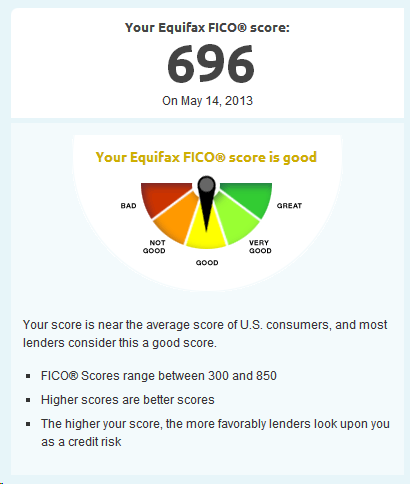Length of Credit History: What You Need To Know
Credit scores are a three-digit number that can dramatically impact your financial choices. With a better credit score, you can access more attractive financing terms for major purchases like a home or vehicle.
One factor that will affect your credit score is your length of credit history. This evaluates how long you’ve had credit.
Here’s what you need to know about your credit history and how it can impact your credit score.
What Is Your Length of Credit History?
The length of your credit history is the amount of time that your credit has been established. Your individual credit accounts and their ages will determine the length of your credit history.
Although numbers surrounding your credit can seem complicated at first, this factor is relatively easy to understand.
For example, let’s say you opened one credit card on your 18th birthday and haven’t opened another account since. When you turn 21, the age of your credit card account will be three years. As the account continues to age, it will increase the length of your credit history.
With a longer credit history, your credit score is likely to improve. This is because lenders are more willing to give you a loan if you’ve proven that you can manage your credit responsibly over a long period time.
Related: Leveraging Your Credit to Get Out of Debt
How Is the Length of Credit History Calculated?
According to FICO, the length of your credit history is determined by averaging the ages of your open accounts.
Luckily, you can calculate this financial indicator fairly easily. Let’s take a closer look at this calculation.
Let’s say that you have three credit accounts open, and you’ve never closed an account. The ages of your accounts are two years, three years, and four years.
First, you’ll add up the number of years to come to a total of nine years. Next, divide that number by the number of accounts you have, which is three. These calculations will help you determine that the average age of your accounts is three years.
If you had arrived at an uneven number, such as 3.33, the FICO algorithm would drop your average age back down to three years.
How Does Length of Credit History Impact Credit Scores?
According to Experian, length of credit history accounts for 15% of your credit score. There are five other factors that also affect your credit score, including payment history, amounts owed, credit mix, and new credit applications.
A longer length of credit history will likely lead to an increased score. If you think about this from a lender’s point of view, that makes sense. After all, you are more likely to repay your loan if you’ve responsibly managed your credit for a long period of time.
How to Hurt Your Length of Credit History
You’ve likely realized that this individual factor is an important piece of your overall financial wellbeing. With that, it is important to avoid negatively impacting this number.
One surefire way to hurt this aspect of your credit score is to close your accounts. If you have older credit accounts open, it is a good idea to keep them open if you want your length of credit history to remain strong.
How to Improve Your Length of Credit History
Want to improve this factor of your credit score? Here’s what you’ll need to do.
Keep Older Accounts Open
If you have older accounts, choose to keep them open. Don’t make the mistake of closing an old account.
If you don’t have many credit accounts open, you may want to open a few accounts now. Once the accounts are open, you can sit back and watch the length of your credit history grow. You’ll need to be patient with this strategy, but it can pay off in the end.
Keep Your Accounts Active
If you choose to keep older accounts open, don’t forget to keep them active. Although you may not use all of your credit accounts regularly, make an effort to use each of them once in a while.
The activity may help to increase the average age of your active accounts.
Become an Authorized User on an Existing Credit Account
If you have a family member or friend with a longstanding account, a quick way to boost your length of credit history is to become an authorized user.
Unfortunately, you may have a difficult time convincing someone to add you as an authorized user. When you become an authorized user, the account holder will have to take all responsibility for your actions.
For example, if you run up a big bill on the card, they would be required to pay it off.
However, a close family member or friend may be willing to help you out if they know you are trustworthy. As a result, it is worth asking about. But take a minute to realize the magnitude of your ask before moving forward.
The Bottom Line
The length of your credit history isn’t the only factor that comes into play in determining your credit score. However, it is important and can boost your credit score if managed correctly.
Since a good credit score can help you stay out of debt thanks to better loan terms, it is worth doing everything in your power to improve it. With a higher score, you will increase your ability to access financing opportunities that could accelerate your debt repayment journey.
Need some help improving your finances? Please take advantage of the free resources offered by Undebt.it to help you improve your credit score.



